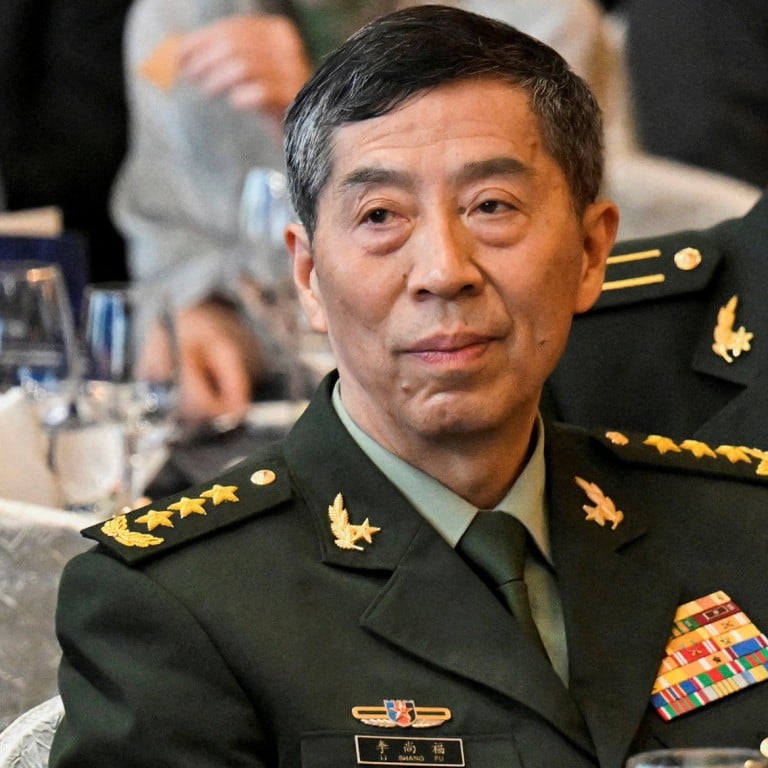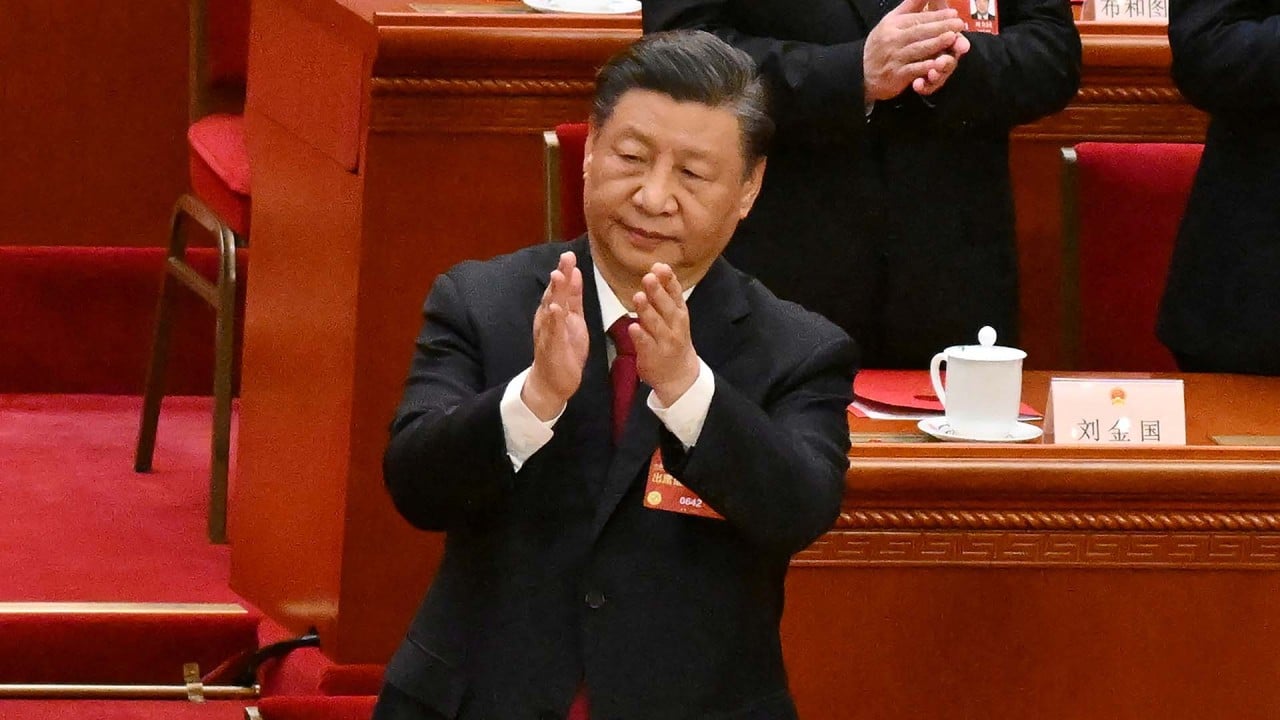
Li Shangfu’s dismissal as China’s defence minister came with no details, but a few clues, observers say
- Beijing offered no explanations after the defence chief was sacked, but experts point to telltale signs leading up to his demise
- As Xi Jinping demands absolute loyalty, Li’s ‘problem could ruin the entire PLA’, analyst says
Beijing has remained silent over why General Li Shangfu – now China’s shortest-serving defence minister – was sacked, but signs leading up to his dismissal suggested that he may have been implicated in corruption, against which President Xi Jinping has launched an aggressive campaign since taking power in 2012.
China’s military top brass called to front lines to probe problems
Just over a month earlier, on June 18, 2023, the CMC said it had released a code of conduct governing how military leaders socialise with others, including government officials, family and friends, the media and religious groups. The CMC said the requirements, which were not disclosed, were intended to improve party discipline and ensure that disciplinary departments could hold military officials accountable for questionable conduct.
Unlike Qin, Li was stripped of all his government titles at once: minister, state councillor and CMC member.
Having all of his government positions removed at the same time indicated that Li’s situation was much more severe than Qin’s, said Liang Guoliang, a Hong Kong-based military observer.
The person, who asked not to be named, added that the origins of many corruption investigations within the PLA could be traced to the fourth phase of China’s Golden Tax System, which was launched early this year. It uses big data and artificial intelligence to trace the capital sources of taxpayers and private companies, and is known for its efficiency in spotting loopholes.
Xi sees fighting corruption as maintaining the PLA’s “political advantage”, while keeping the military under the absolute control of the ruling Communist Party. In 2017, five years into his tenure as party leader, state media praised his anti-corruption campaign, reporting that more than 100 PLA officials above the corps level, including former CMC vice-chairmen Xu Caihou and Guo Boxiong, had been investigated since Xi took power.
In a lengthy profile of Xi, the Xinhua news agency claimed that the number of officials had exceeded the number of generals who died during the communist revolution that led to the People’s Republic.
Xi’s campaign against corruption has been deemed essential to military modernisation, and Li’s sudden removal suggested serious disciplinary issues within the PLA despite the aggressive anti-corruption drive, according to Dr Olivia Cheung, a research fellow at the Soas China Institute in London, who specialises in Xi’s ideology and the Chinese political system.
The PLA has set out to become a world-class military by 2049, meaning parity with US forces, through modernising arms, training and procedures.
“This will no doubt result in Xi doubling down his effort in re-politicising the PLA as first and foremost ‘the party’s military’, that has iron discipline and unwavering ideological conviction,” Cheung said.
Xi’s anti-graft drive has become more political, and the fight’s far from over
Zhou Chenming, a researcher with the Beijing-based Yuan Wang military science and technology think tank, said the fall of Li and other senior generals might damage Xi’s prestige, but would not deter him from rooting out corruption in the PLA.
Xi’s campaign had already halted the collective buying and selling of military ranks, he said.
“But military reforms have also resulted in corrupt activities becoming hidden and out-of-the-way, which requires targeting with a more ironhanded approach, since military corruption is a matter of national security.”



